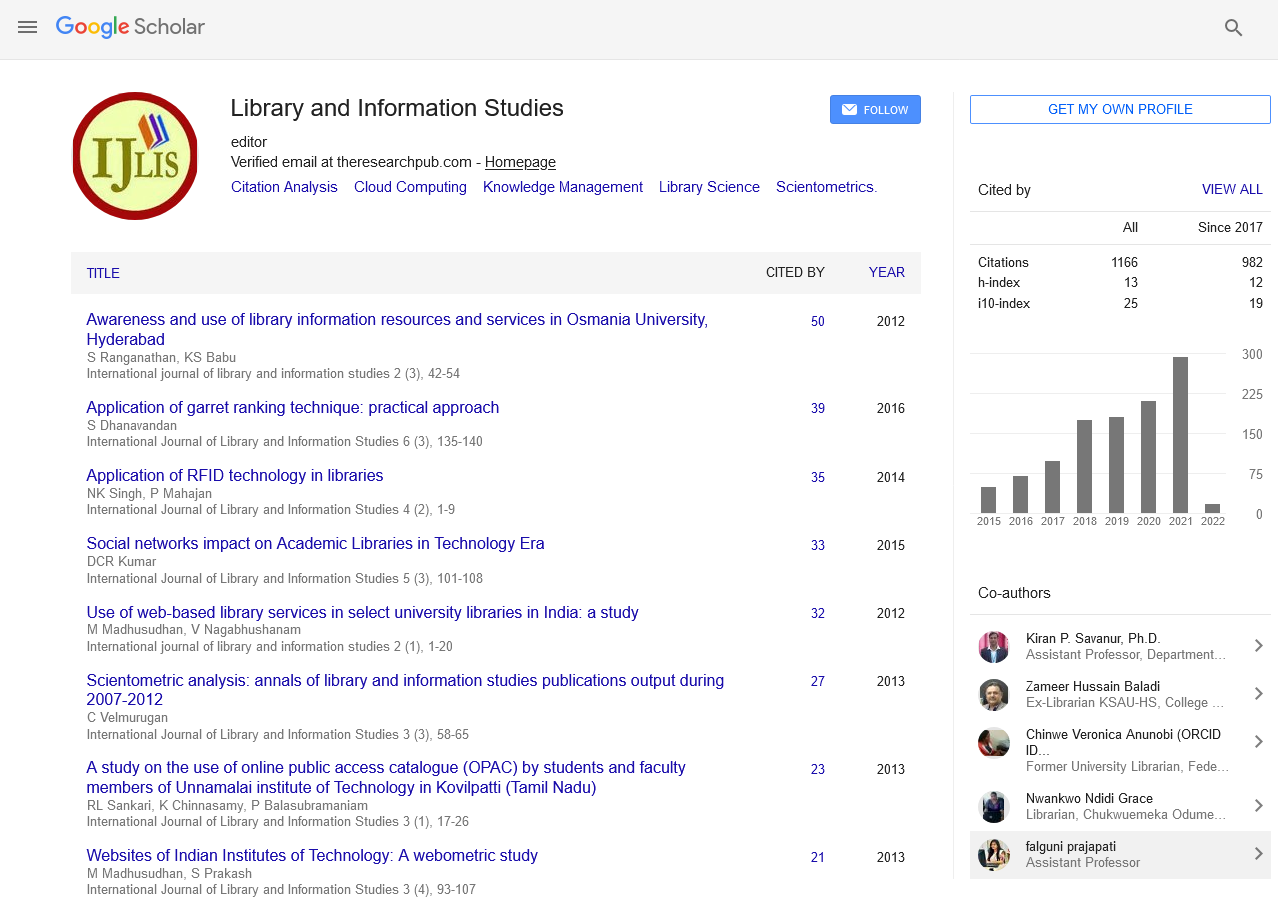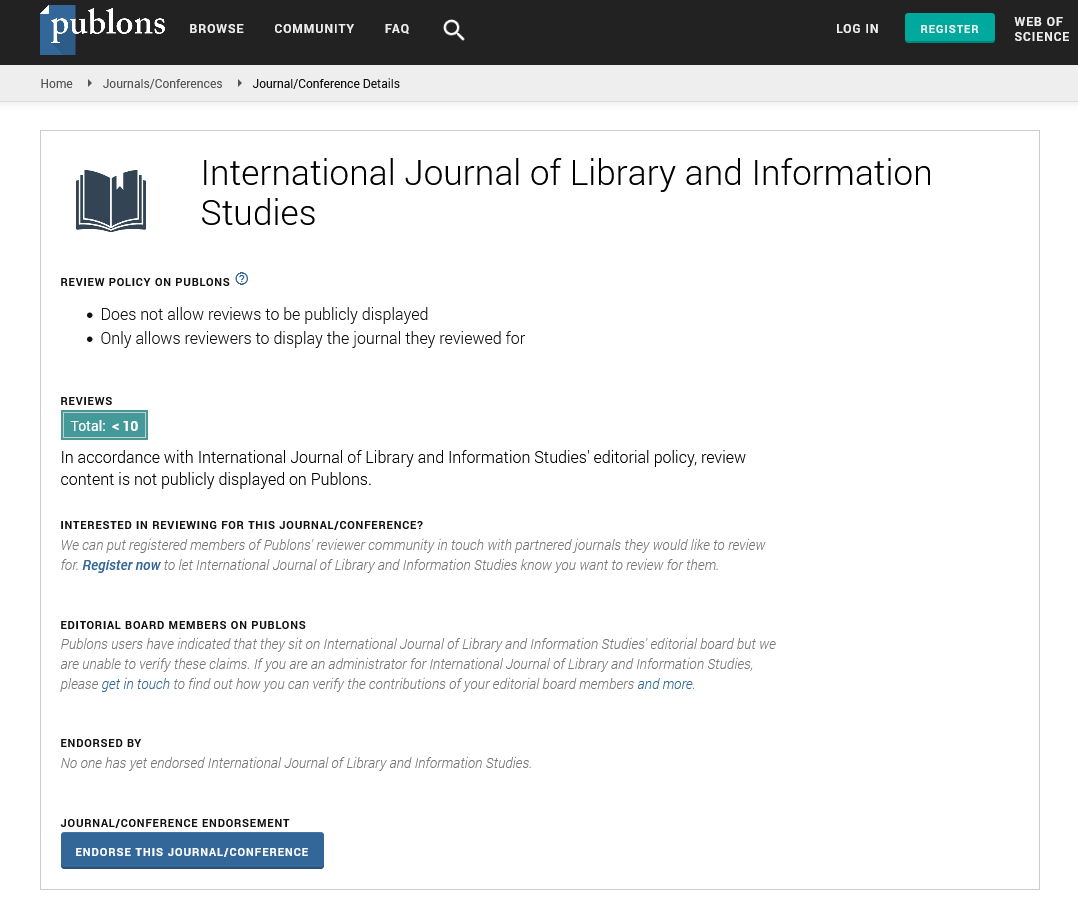

USE OF ICT BY RESEARCH SCHOLARS: A SURVEY OF ALAGAPPA UNIVERSITY, KARAIKUDI, TAMILNADU
Abstract
Author(s): G. Stephen, S. Thanuskodi
The information and communication technology revolution is sweeping through the world and the gale has even caught up with developing countries like India. Information and communication technologies have introduced new methods of teaching and conducting research and have been brought into education facilities for online learning, teaching and research collaboration. While some college communities in some countries enjoy free or inexpensive Internet access, students and faculty/staff in India must pay for time spent accessing the Internet, whether at a cyber café or in the library (some of the library they are providing free access). To improve ICT services in the library, therefore, researchers need to show how research scholars and faculty/staff are using the Internet in the academic environment. Information and communication technologies have given rise to new modes of organizing the educational environment in schools and new concepts in the teaching process as well as the remodeling of the roles played by the participants in the educational process. The results of the study shows that 112(85.49%) respondent for download the e-resources, 23(17.56%) respondents for online shopping, 104(79.39%) respondents for prepare assignments. The study also reveals that most of the respondents opined the impact of ICT in Higher education as excellent (54.19%),
Call for Papers
Authors can contribute papers on
What is Your ORCID
Register for the persistent digital identifier that distinguishes you from every other researcher.
Social Bookmarking
Know Your Citation Style
American Psychological Association (APA)
Modern Language Association (MLA)
American Anthropological Association (AAA)
Society for American Archaeology
American Antiquity Citation Style
American Medical Association (AMA)
American Political Science Association(APSA)



